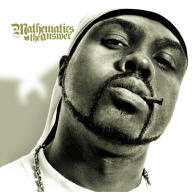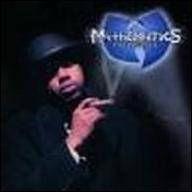The future producer originally thought of himself as an MC and imitated Spoonie Gee, Melle Mel, Kool Moe Dee, and other favorites, but a realization that it was the DJ who controlled the tempo and flow changed everything. Influenced by early greats like Grandmaster Flash, Grand Wizard Theodore, and DJ Charlie Chase, he started DJing block parties in the '80s while his brother hooked him up with future Wu-Tang member GZA. GZA was working with the Cold Chillin' label and needed a DJ, but this was only the beginning of Mathematics' Wu-Tang association.
GZA's family lived around the corner from Mathematics, and one day GZA called the young DJ to go to Queens and watch his cousin shoot a video. The video was for Ooh I Love You Rakeem by Prince Rakeem, and Mathematics was shocked to find out Prince Rakeem was actually an old friend, RZA. Over time, RZA taught Mathematics all he knew about production, like how to use samplers and how important it is to have your own voice. At the time, the copyright rules for sampling stated that if you kept a sample under three seconds you didn't have to get label clearance. To avoid seeking clearance, Mathematics sped up old soul records and created a sound that has since become widely imitated. Wu Banga 101 from Ghostface Killah's Supreme Clientele, Rules from the Wu's Iron Flag, and uncredited work on Must Be Bobby from RZA's Digital Bullet are some of Mathematics' major contributions to the Wu world.
In 2003, Mathematics released his first full-length, Love, Hell or Right on his own Quewisha Records label in conjunction with High Times Records. He has also released his own mix CD (available through his website), drawn the artwork for GZA's Liquid Swords album, and written the theme and additional music for Wanda Sykes' television show, #Wanda at Large. ~ David Jeffries, Rovi
















